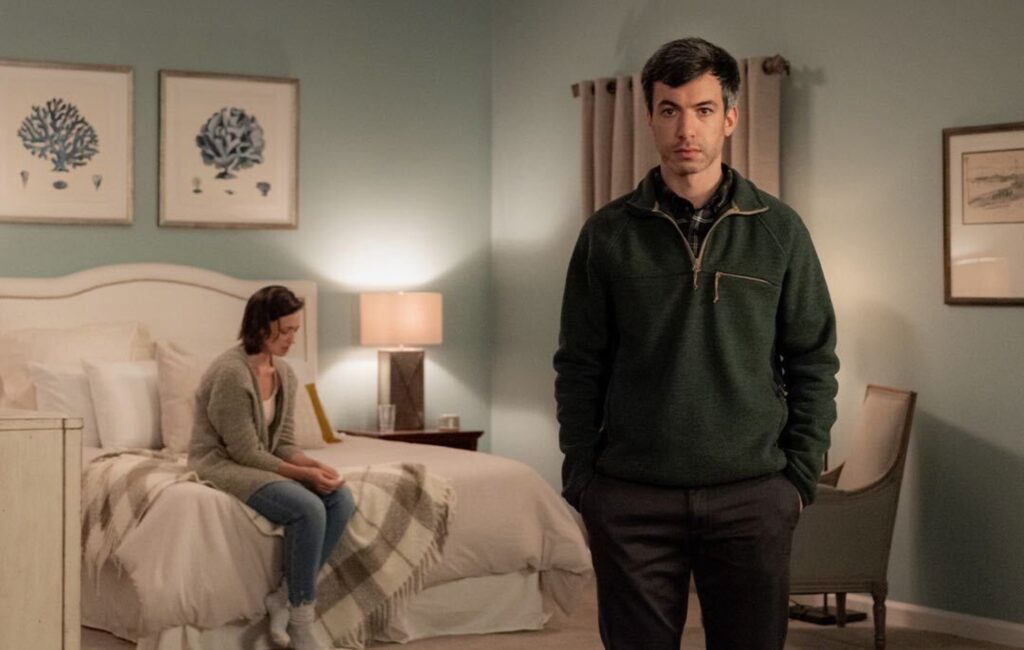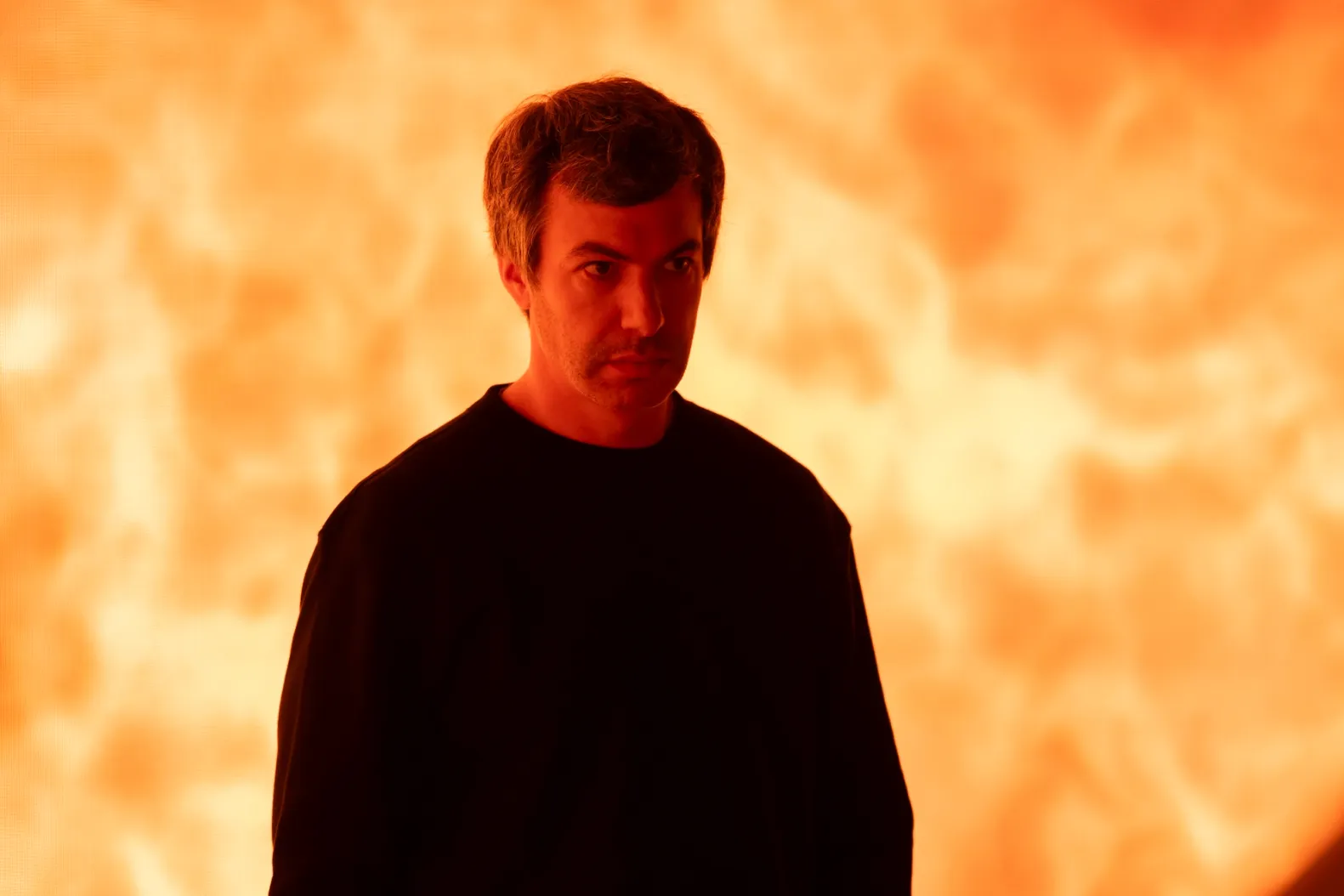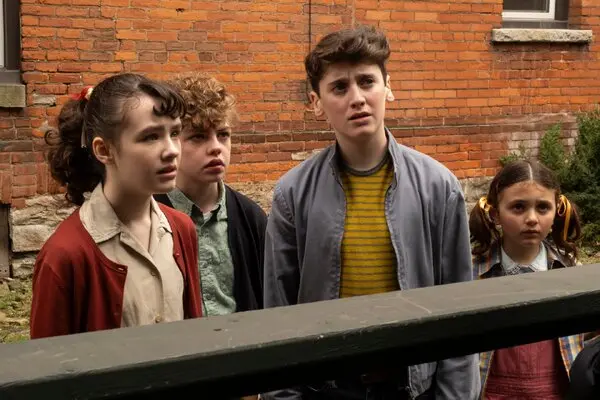Okay, let’s talk about the new season of “The Rehearsal.” Forget everything you thought you knew about awkward reality TV – Nathan Fielder has officially run it through the existential blender and turned the weirdness up to eleven. Season 2 is here, and it’s bigger, bolder, and, frankly, messier in all the right ways.
“The Rehearsal” Grows Up – Literally
You probably caught whispers about the size of this year’s sets. Those rumors? Honestly, no exaggeration. This season, Nathan convinced HBO to bankroll a replica of an entire airport terminal – yes, a terminal. And that’s just one example. Bigger budgets make for much bigger dreams, so Fielder’s scenarios are truly erupting into full-blown spectacle. The warehouse-sized sets are so elaborate, someone on Reddit joked they might swallow a small city block.

It’s not just about the wow factor, though. The show’s dramatic set design ramps up how real these “rehearsed” situations feel, both for the unwitting participants and the audience. This is not your typical reality series where the biggest twist is a surprise houseguest. One episode even used a full-scale simulation to test how people communicate under pressure, and let’s just say, nobody left feeling totally chill about their own problem-solving skills.
The Aviation Episode: Turbulence in Social Experimenting
Speaking of pressure, let’s talk airplanes. Fielder & Co. basically build an entire airport scenario from the ground up – complete with check-in, boarding, the works – all to examine how miscommunication between pilots can spiral out of control. In fact, the show re-enacts a few real-life aviation incidents as part of its investigation. You see the tension build and watch as the stakes skyrocket. When someone misses a radio call, you can’t help but hold your breath – because the outcome could be catastrophic.
And the feedback on this one? Aviation buffs and anxious fliers both exploded on X (yeah, we’re calling it X now), debating whether Fielder’s version cut too close to home. It’s a highwire act – equal parts education, theater, and, for some viewers, straight-up therapy for fear of flying.
Performance Art or Reality TV, and Does It Even Matter?
So, here’s the question everyone is arguing about: Is this reality TV or performance art? Philosophy grad students on X seem downright gleeful in debating it. Some say Fielder is crafting social experiments set to hidden-camera comedy. Others claim he’s delivering meta-performance art that belongs more in a Soho gallery than on HBO.

At the heart of Season 2 lies a brand new meta-twist. In a wickedly self-referential move, Fielder stages a full-blown reenactment of a controversy from his earlier “Nathan For You” days. Remember the Holocaust awareness campaign that set the internet ablaze? Well, Fielder brings it back – not just as a callback, but as a way to force a fresh perspective on past “cringe” TV moments. At times, it feels uncomfortably close to home for viewers who grew up on social media blunders and viral gaffes.
Chasing Authenticity, Losing Yourself in the Simulation
But there’s another layer here. Nathan’s famous for wrestling with the idea of “the real.” Throughout Season 2, he blurs those already shaky borders between authenticity and staged absurdity. You watch people attempt to control their lives by running through every possibility in a manufactured setting. There’s guilt. There’s hope. There are wild confessions and face-palming mistakes. It all feels a little too familiar for anyone who’s ever over-thought sending a text or practiced a tough conversation in the mirror.
- Nathan relives awkward moments from his own reality TV past.
- Participants rehearse life-altering events (sometimes without knowing the full scope).
- Set construction reaches new heights of realism, from airplane cockpits to suburban homes and – yes – gigantic warehouses that could fit a small army of rehearsal actors.
The Ethics of Emotional Playground
Now, here’s where things get spicy: The entire internet is arguing about ethics. Critics and fans alike aren’t sure Fielder should tinker with people’s emotional lives to this degree. Are the participants really “in” on the joke? Do they consent to every possible twist? Some reviewers, like those at Newsweek and Vox, suggest the series might be “the most manipulative thing on TV,” but they also admit they can’t look away. People get invested, sometimes a little too invested, and end up revealing emotions or secrets they’d never dare to share on their own.
But there’s also a whistle of admiration. Fielder pulls off intricate, multi-episode storylines that dig deeply into how people react to stress. Not everyone agrees with his methods, but nobody can deny the show manages to spark conversations way beyond basic entertainment value.
Psychologists in the Chat: Why So Many Viewers Are Hooked on “Secondhand Existential Dread”
Psychologists chimed in online and, believe it or not, many seem just as fascinated as the rest of us. They say viewers gravitate to Fielder’s awkward, often embarrassing explorations because it’s a chance to process their own social fears – from the safety of their own couches. Experiencing secondhand embarrassment? Absolutely. But it’s also relief that, this time, it’s someone else in the hot seat.
A few breakdowns from pop-culture psychologists:
- Watching rehearsals allows viewers to dissect human nature without risk.
- The uncomfortable moments are cathartic – a low-stakes way to face anxiety.
- Fielder’s format blurs observer and participant, making you question whether you’re just watching or actually involved emotionally.
And then there’s the spectacle. Every episode offers a strange thrill: Could all of this go sideways? Does the “simulation” ever reveal deeper truths, or just lead to more bewilderment? If nothing else, Fielder is teaching us that watching someone else fumble through their anxieties is, for better or worse, weirdly comforting.
Fan Theories, Easter Eggs, and Internet Frenzy
The fan theories? Wild as ever. As soon as new episodes drop, Reddit and X light up with speculation. Did Nathan intentionally cast someone who reminds viewers of himself? Is the emotional chaos part of a larger commentary about the impossibility of being “prepared” for reality? Can anyone truly “rehearse” heartbreak, loss, or reconciliation?
- One massive thread on r/NathanForYou is convinced Fielder hides clues in every set piece, big and small.
- Fans spotted callbacks to earlier “Nathan For You” stunts, like the infamous “Dumb Starbucks” and viral Burger King moments.
- There’s even a TikTok subthread chronicling every time a participant uses a stock Fielder phrase (“Let’s try that again, but slower…”).
Not Just for Laughs – What’s the Endgame Here?
Here’s the secret sauce: “The Rehearsal” is never just about laughs. Each episode dials up uncomfortable truths about why people rehearse life’s hardest moments. There’s a kind of hope embedded in every awkward encounter – hope that maybe, just maybe, we could dodge disaster with enough preparation.
The team’s sky-high production values drag the show closer to low-key Hollywood than anything on reality TV. But the discomfort, the emotional rawness, and the ridiculous attention to detail? That’s pure Fielder.
As the season rolls on, expect even more debate about where the show lands on the “morally defensible” spectrum. Should Fielder be allowed to poke at the softest, most private moments of people’s lives for art (and our binge-watching pleasure)? Or is he just holding up a freaky funhouse mirror to a public already obsessed with their own image?
What’s Next: Are You Ready for Your Own Rehearsal?
With Season 2, Fielder doesn’t just break the fourth wall; he bulldozes it and invites everyone inside to mess around. Is “The Rehearsal” brilliant entertainment, sly social experiment, or, as one Twitter wag put it, “therapy for those who can’t afford actual therapy”?
Whatever side you land on, one thing’s certain – Fielder is making TV that demands you keep watching, squirming away from the screen, and coming back for one more round of calculated cringe. Season 2’s bigger budget, bigger risks, and bigger ethical messes ensure that, in 2025, nobody is better at making us all wonder, “What if I could rehearse life, too?” So clear your calendar, practice your most awkward smile, and get ready to overthink the next episode – for the sake of “research,” of course.





